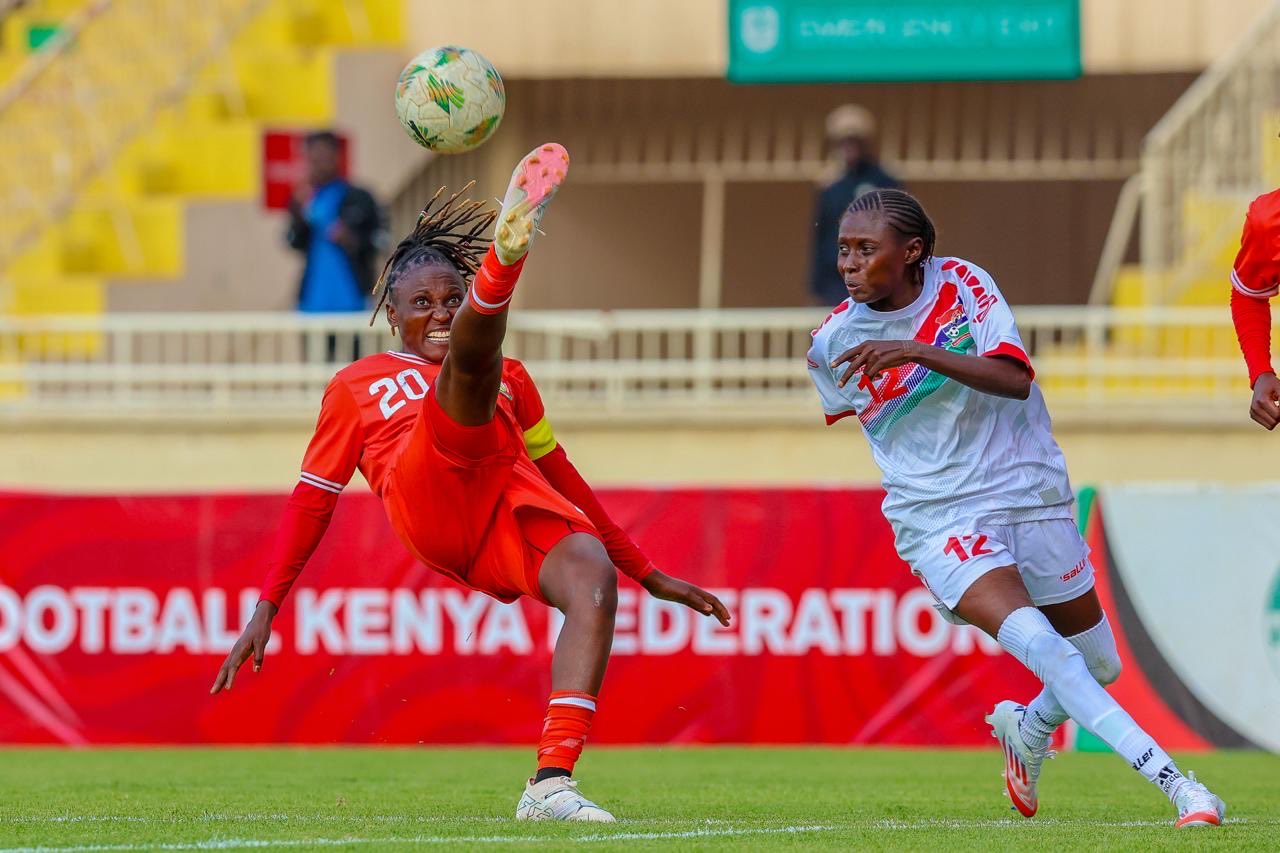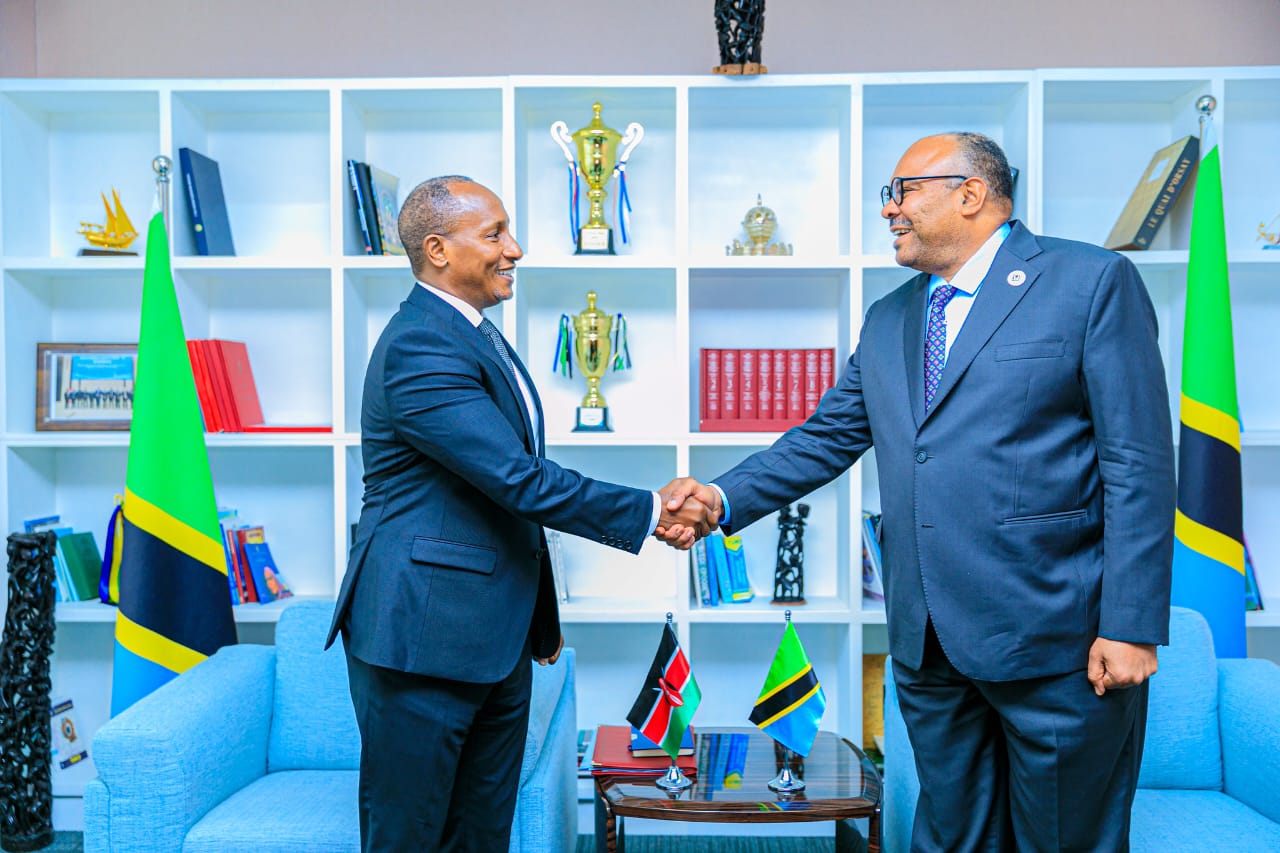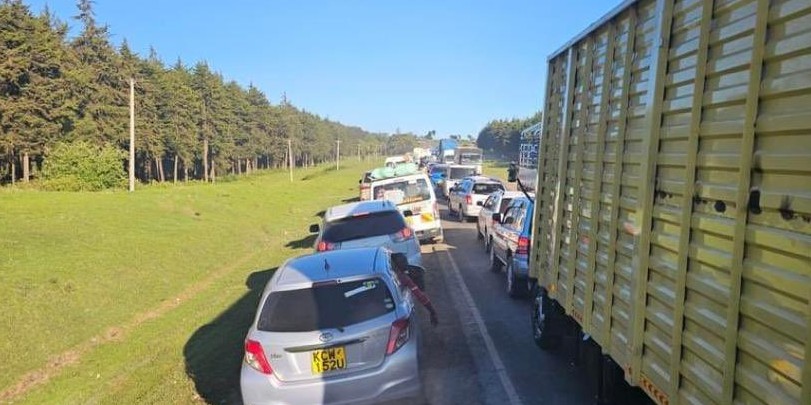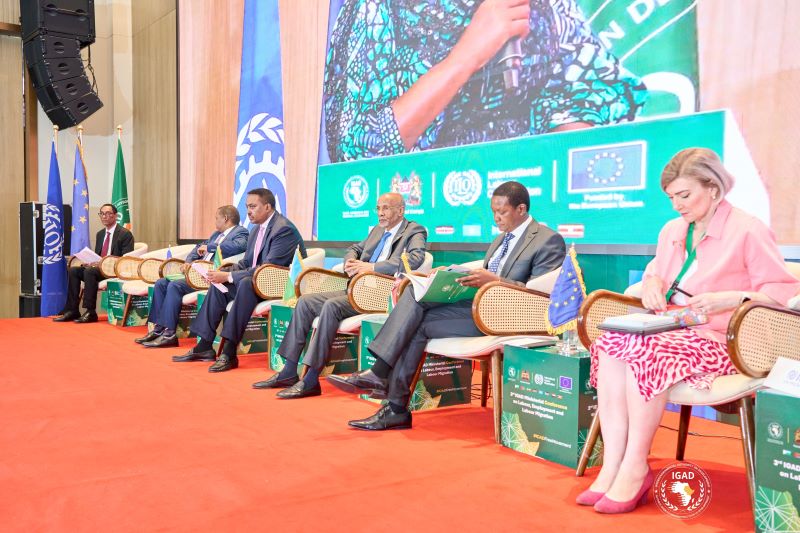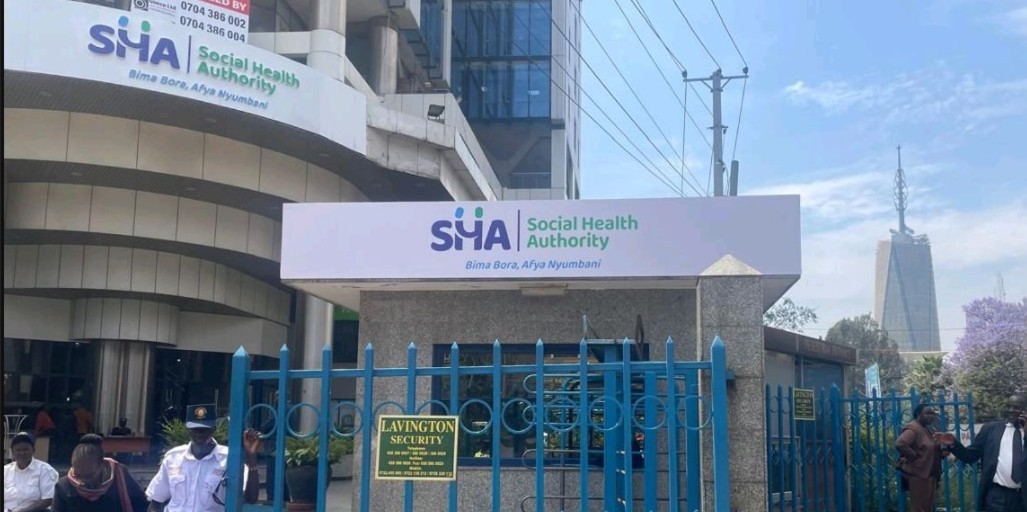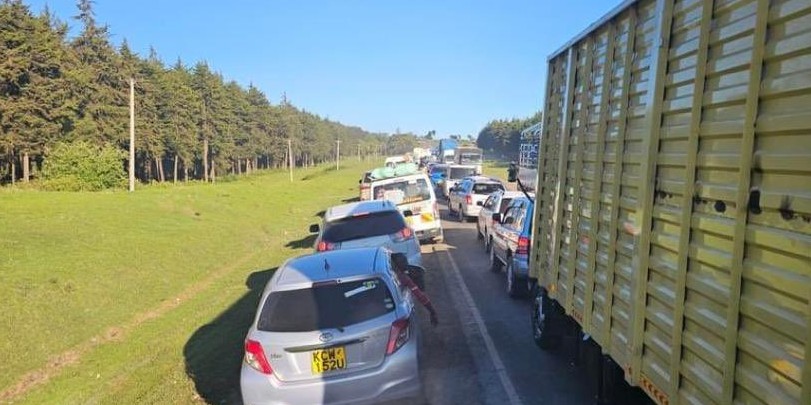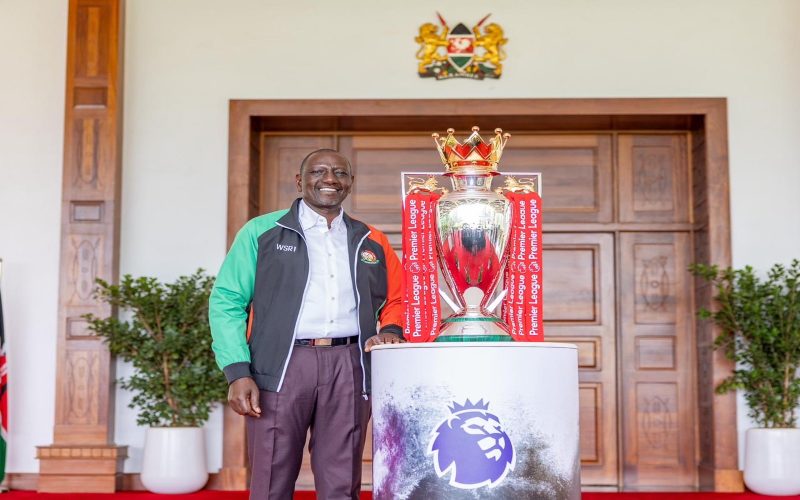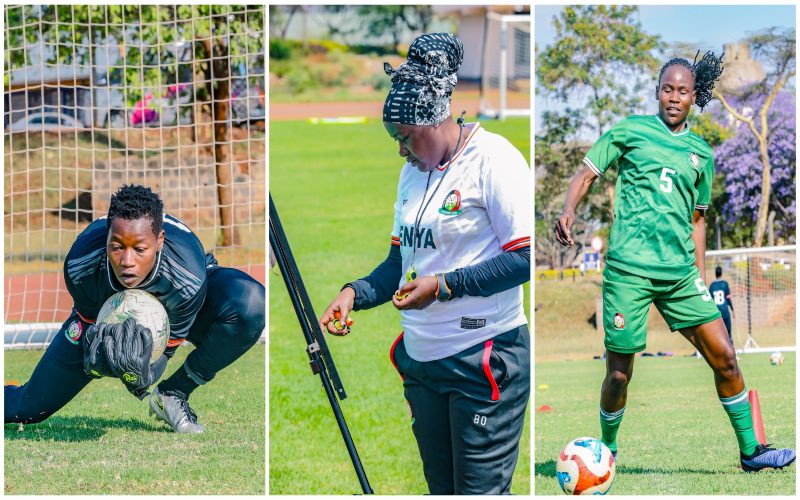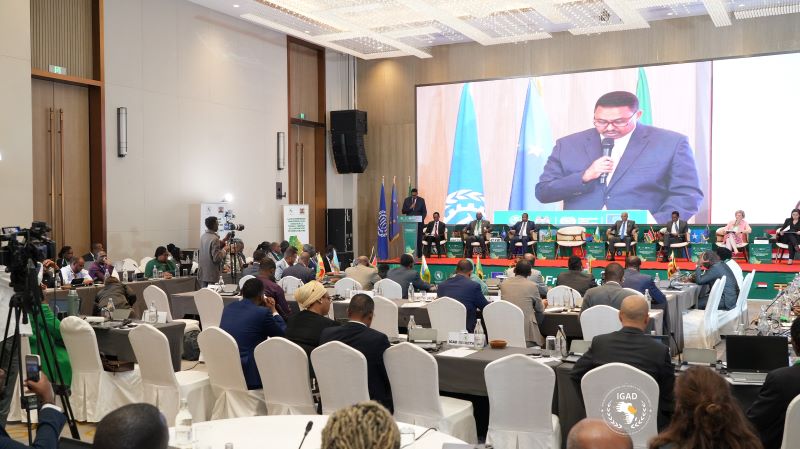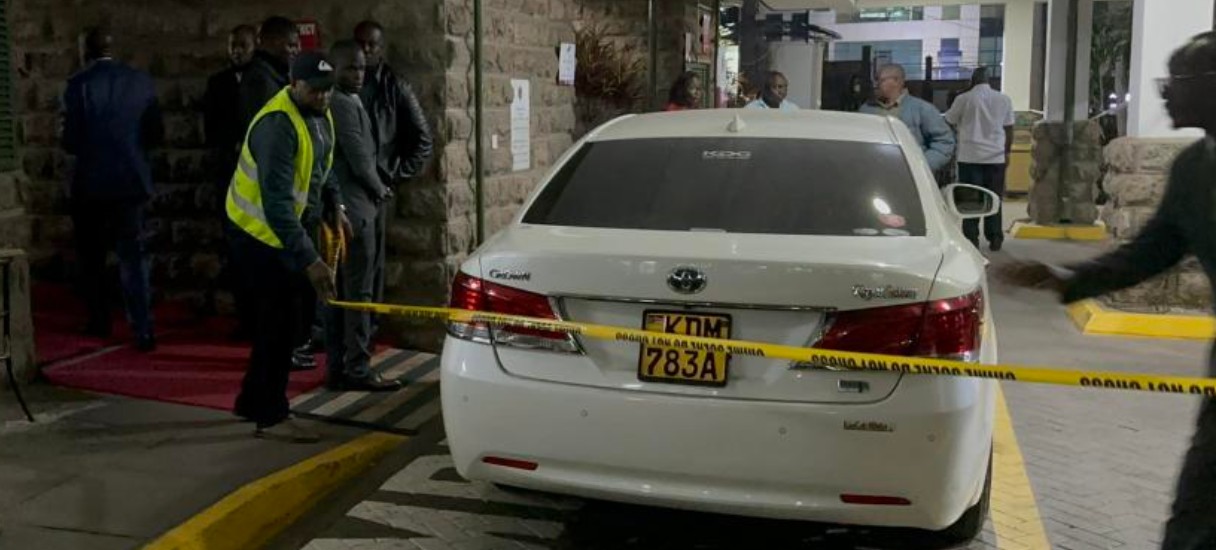Unbowed: Umeme FC’s battle to maintain club’s rich heritage amid financial difficulties
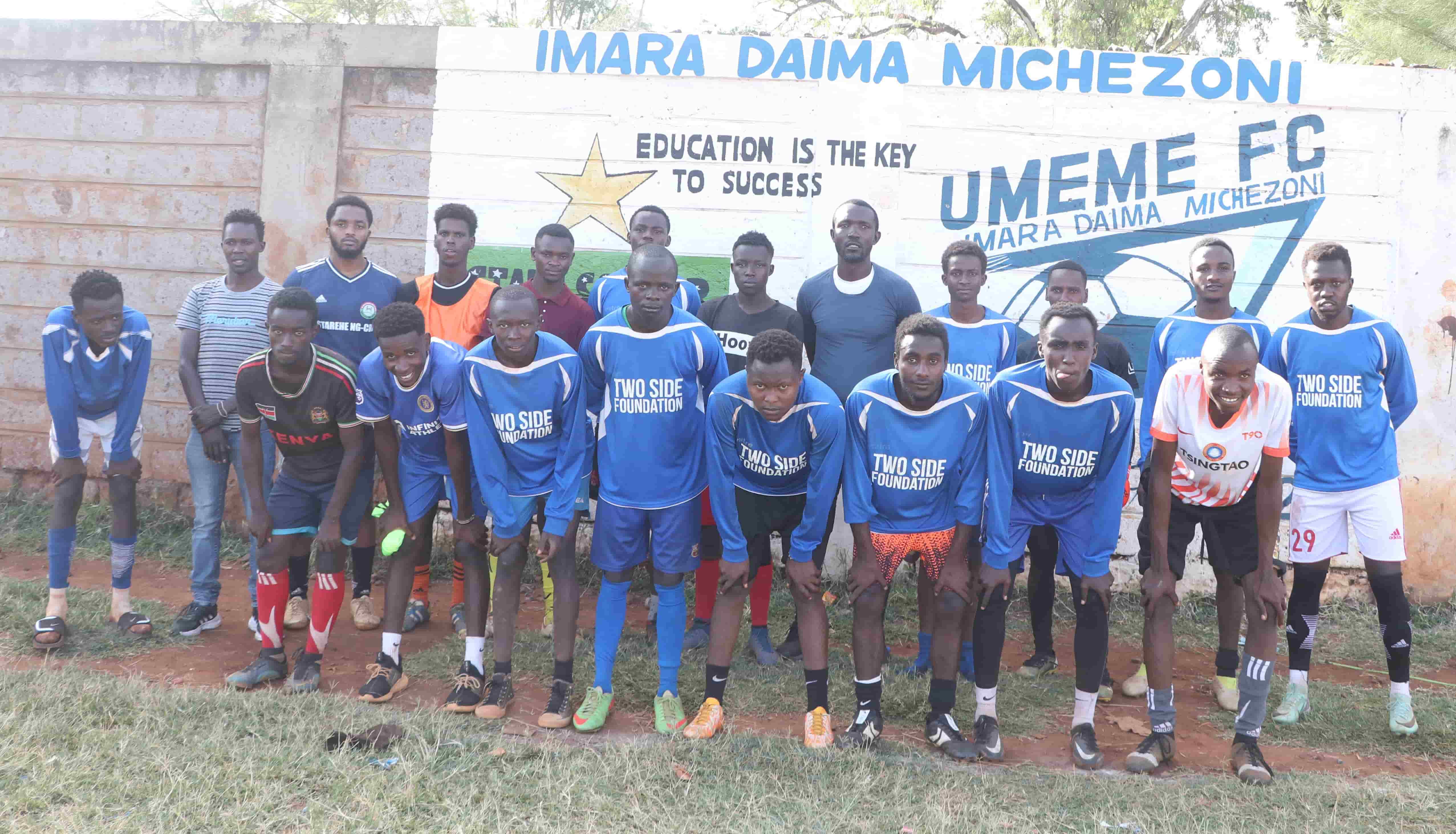
Umeme FC, which has produced renowned players such as Humphrey Mieno, is currently struggling to meet its running costs and is yet to pay registration fees for the FKF Nairobi East County League
Daniel Ramadhan Otiato saunters into Ziwani Ground a few minutes to 3:30 pm on Thursday 7 March.
The former Sofapaka and Congo United forward finds the players of his team, Umeme FC, in various phases of warming up for their friendly match against Carrot FC, a team sponsored by vegetable vendors based at the Muthurwa Market.
More To Read
- Kenyan defender Clarke Oduor joins Grimsby Town on loan
- Tusker FC releases nine players as squad reshuffle begins
- From waste to water tanks: How Kariokor youth are turning Nairobi’s trash into livelihoods
- Veteran coach Ghost Mulee tears into Kenyan football’s empty promises
- Melawa FC prepare for top-of-the-table clash against Fearl FC
- Gor Mahia disbands entire technical bench after trophyless season
Umeme FC, founded in 1972 as the football wing of Umeme Sports Club, competes in Zone A of the Nairobi East County League while Carrot FC is preparing to join the Kenyan football league pyramid at the Sub-county league level next season.
Once in the ground, Otiato, who is the Team Coordinator and of the coaches of Umeme FC, calls his players, mostly high school and college students, for a huddle to set up the starting squad and explain tactical formations. However, his players, whom he had told earlier that he would arrive late due to other engagements, inform him that he they have already organised themselves. “Tushajipanga,” a player tells Otiato, who was Sofapaka’s top scorer with 32 goals when they won promotion to the Kenyan Premier League after winning the Nationwide League in 2008.
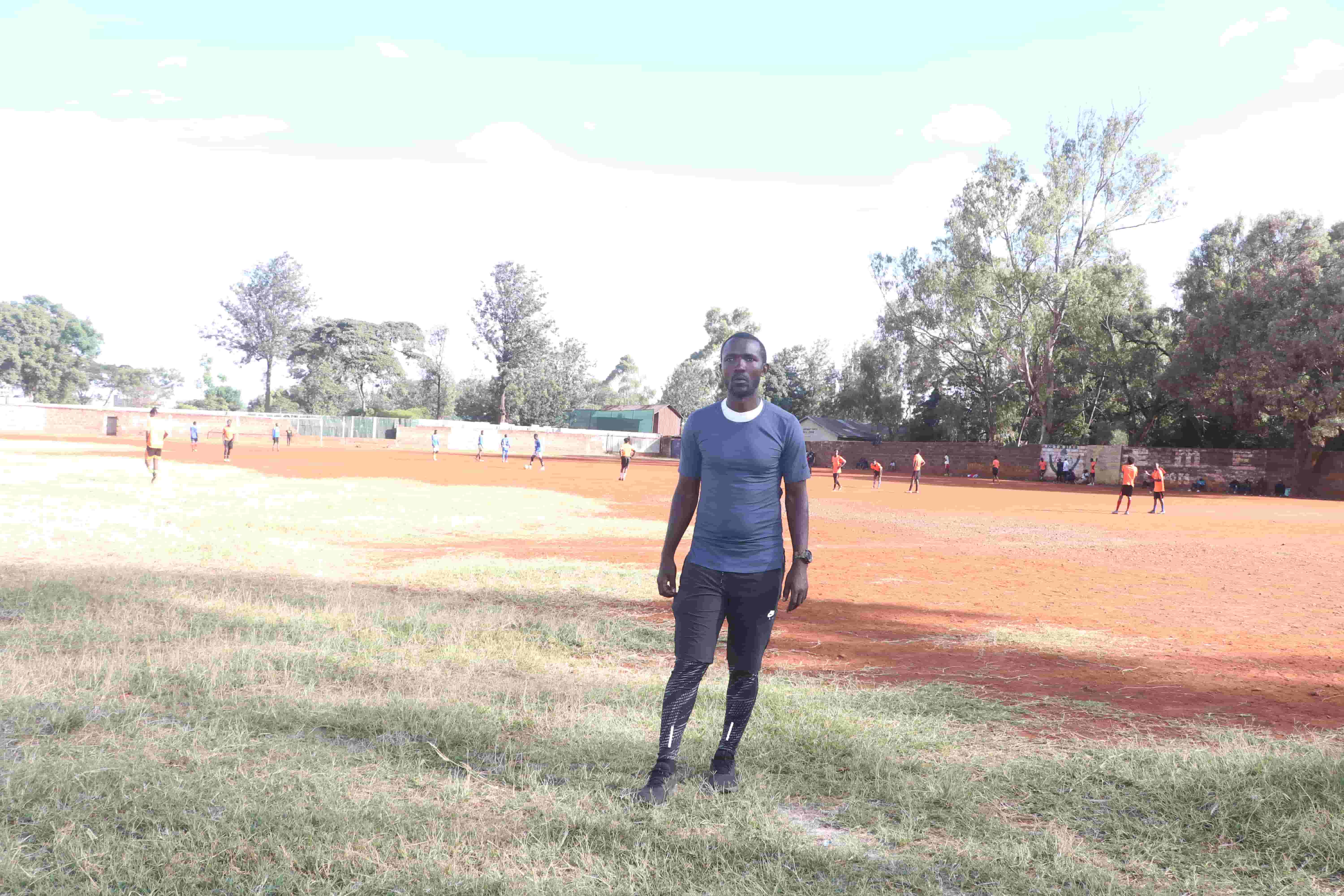 Coach Daniel Ramadhan Otiato during a match between Umeme FC and Carrot FC at Ziwani ground in Eastleigh on March 7 2024 photo by Justine Ondieki.
Coach Daniel Ramadhan Otiato during a match between Umeme FC and Carrot FC at Ziwani ground in Eastleigh on March 7 2024 photo by Justine Ondieki.
After getting a brief of the line-up and the tactical formation from another player, Otiato, who holds a CAF D Coaching license, ratifies his players’ decision. He then asks for the whereabouts of certain players and he is told they are still held up at work.
“At the grassroots, it is not easy to get all players at once for a match or a training session. Most have day jobs that help them put food on the table and we can only rely on them when their work schedules allow,” Otiato said as he takes a seat behind the goal that neighbours the Ahamadiyya Muslim Cemetery.
“We train five times a week, from Monday to Thursday and on Saturday. We mostly train in the afternoons or evening because some players have to go school and others have to report at their work places but on Saturdays we train from 6 am to 9 am. We do not train on Friday because most players are Muslims and therefore go to the mosque,” Otiato, who is also a Muslim, added. He converted to Islam during his stints in various club in Oman and Yemen.
Soon after, the match kicks off, and Otiato quickly notices that one of the balls needs to be inflated. He calls one of the substitute players, Ali, and asks him to take the ball to be inflated at a cobbler based at the Ziwani Shopping Centre.
Ali, who is from Mombasa, does not know the place and the landmarks Otiato mentions as he directs him to the cobbler’s stall highlighted the strong presence of the Nairobi City County Government in Ziwani-Kariokor Ward.
County facilities, inherited from Nairobi City Council, such as administrative offices, houses, hospitals, schools, and social halls, abound in Ziwani-Kariokor Ward. It is in this area that Otiato and many of his elders, players, and peers were born, raised, and currently reside.
“Ziwani-Kariokor is one big family,” Otiato said.
“Most of the players were born and raised here but we have quite a number who hail from places like Bungoma, Mombasa, and Nakuru. Through football and Umeme FC, they have integrated to the Ziwani-Kariokor Community. The sport and the team have given them a sense of belonging,” he added.
Ali returns with the inflated ball and tells Otiato that the cobbler has charged Ksh. 40 for the service as he handed him a piece of paper on which the cobbler’s phone number is written so that he can send him the money. The price of goods and services have been rising in Kenya but that experience extending to the inflation of footballs is one that surprised Otiato.
“40 bob!” Otiato shouted in shock. “Hiyo ni mob!” (That is too much). He makes no effort to sort the bill. “Nitamsort baadaye,” (I will pay him later) he said.
Every coin matters for Umeme FC at the moment. The club has been without a sponsor for almost two years since their previous financier, embattled Nairobi County employee Wilson Kanani, was forced to withdraw support due to ongoing court cases over the source of his wealth.
“When Kanani sponsored us, we had over 20 balls and each player had a branded water bottle. Each player used to go home with Ksh, 500 after every matchday and that kept them really motivated. Everything was going well for us and we even had players leaving Division One clubs to play for us. Right now though, we are really struggling,” Otiato said of Umeme FC current financial state.
“We even had good kits and training equipment like bibs and cones but now they are worn out and we need new ones,” he added.
Indeed, on the pitch, Umeme FC players are not wearing matching jerseys, shorts, and stockings. In Kenyan football terms, their kits are “rounded off to the nearest colour of the team’s official kit”. Their players do not have shin guards either and others do not have proper football boots.
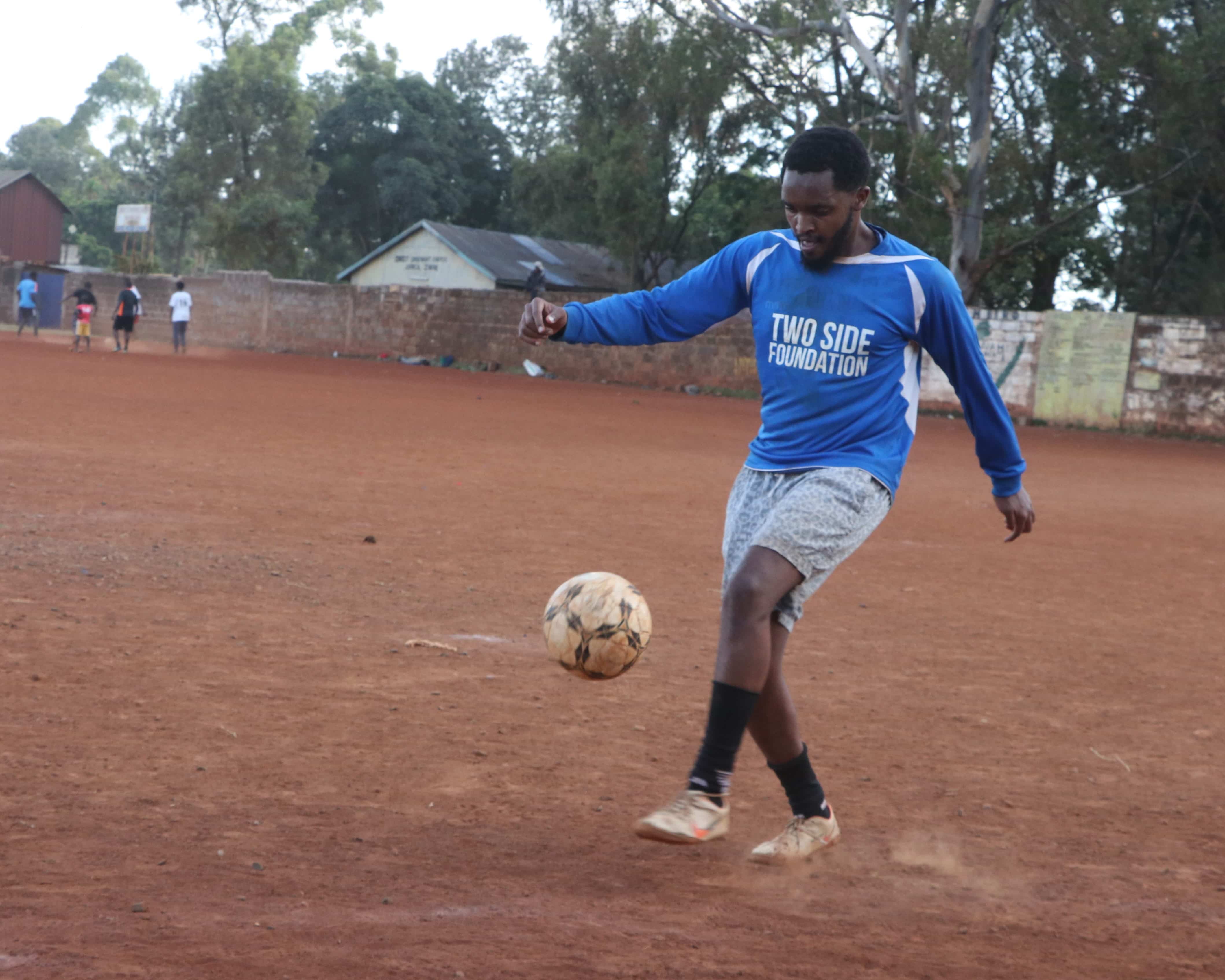 Umeme FC Midfielder Aboubakar Ahmad juggles the ball during match between Umeme fc and Carrot fc at Ziwani ground in Eastleigh on March 7 2024. Photo by Justine Ondieki.
Umeme FC Midfielder Aboubakar Ahmad juggles the ball during match between Umeme fc and Carrot fc at Ziwani ground in Eastleigh on March 7 2024. Photo by Justine Ondieki.
It is a scene that paints the real picture of football in the lower echelons of the FKF leagues – players and teams get by with the bare minimum. At this level, they don't really care much about the professional standards.
The loss of Ksh. 500 matchday allowance means that the Umeme FC coaches struggle to raise a team on weekend as teams playing recreational football leagues poach their players and pay them up to Ksh. 1 000 to play for them.
The recreational football leagues feature teams comprising players who, even though they play football just for fun, care so much about bragging rights that they “sign” players from teams like Umeme FC and others at their level to play for them in their fun matches.
“At times we train players for a whole week but on matchday we cannot rely on them because they have gone to play in a recreational league where they get paid appearance fees and performance bonuses. If we had money to give them on matchday we can stop that but for now we have to contend with it because it is hard keeping a player when you are not giving them any money,” Otiato, whom AFC Leopards once recruited to feature for them in just one Moi Golden Cup match, said.
“We have tried to source for funds through the Ward Development Funds and the Constituency Development Funds but we have not been successful. We need Ksh 30,000 to register to play in the FKF Nairobi East County League and, at the moment, we can be ejected any time because we are yet to make full payment,” Otiato added.
“We cannot afford being kicked out of the league. Umeme FC is a club with a rich history of producing players for Harambee Stars and top flight clubs. Recently, we have produced players like Alwyn Tera (Ararat – Armenia), Giovanni Lukwama (AFC Leopards), Luis Misiko (Posta Rangers), and Victor “Aguero” Otieno (AFC Leopards). So, we have to fight to keep that heritage alive.”
For a player who has played through Umeme FC before going to play professional football locally and abroad, Otiato knows what it means to keep Umeme FC’s proud heritage alive. The list of Umeme FC legends contains names like Austin Oduor, Aggrey Ongoli, Humphrey Mieno, Martin Musalia, Neto Andefua, Robert Oguda, Sammy “Kempes” Owino, William Obwaka, and many others who have played for top clubs in Kenya and featured for foreign clubs with admirable success.
For a team to play in the Nairobi East County League, they have to pay Ksh. 30, 000 which covers affiliation fee, Ksh 10, 000 for the master card and a participation fee of Ksh 4,000. A master card is a sheet of paper on which a team’s cautions and expulsions are recorded. The master card is updated after every match and a team has to present it at their next match so that their opponents can ascertain they are not fielding a player suspended due accumulation of yellow and red cards.
On top of that, Umeme FC, whose recent accolades include winning the Peace Cup in 2022, has to raise Ksh 500 every match to pay match officials as do the other 23 teams in their Nairobi East County League zone. Due to most teams experiencing financial difficulties and to avoid congestion of fixtures, the 24 teams will only meet each other once – there will be no return leg matches. Therefore, Umeme FC will need to have fork out Ksh 11, 500 more to pay referees.
Other additional costs are transport and matchday meals and allowances for players.
“At the moment, we have to chip into our pockets to honour matches and meet matchday expenses. We ask players to contribute between Ksh 100 and Ksh 200 depending on the budget.”
For an amateur competing in the FKF County League, parting with such amounts of money every weekend is not easy but it is a sacrifice they make for the love of the game.
Otiato hopes that the area Member of Parliament, Amos Mwago, would step in and help the teams based in his constituency to make those payments to FKF.
“MPs in other constituencies have done the same and, I hope our MP will also follow their lead. That will greatly reduce our burden and it will ensure that our players are engaged in a productive activity for the whole year. Otherwise, it will be hard to maintain players if we are not competing in any league,” Otiato said.
It is a sentiment that Umeme FC goalkeeper, Rama Athman, echoes.
“Playing football keeps me busy. I also get to learn about the sport from our coaches and that knowledge is helping me to improve as a player,” Rama, who is 27 years old, and has been at Umeme FC for a year, says.
Another player, 20-year old midfielder Randy Wafula who joined Umeme FC from Bungoma’s Kimilili AllStars, also hopes to take advantage of the coaching he receives at Umeme FC to progress to a club in the top leagues.
“I appreciate that Umeme FC has coaches who understand modern football. Playing under them sets me up well to realise my dream of playing for AFC Leopards and later Real Madrid,” Randy, who studies Information Technology at the Railway Training Institute, said.
Like Rama and most other players at Umeme FC, Randy has also been at the club for one year. As a grassroots club, Umeme FC does not keep its best players for long.
“Due to our financial situation and position in the football league pyramid, we cannot stop players from leaving for greener pastures. We would definitely wish to do more but for now, giving them a platform to showcase their skills is the best we can offer and we are proud to see our players leaving and thriving at other clubs,” Otiato said.
The high turnover of players means that during every transfer window, Umeme FC registers almost 30 players and that is a costly exercise. Currently, the club is in the process of finding an office and therefore, they carry out most of their administrative operations that require internet and use of a computer at a local cyber café.
Clubs playing in FKF leagues register their players through a portal called FIFA Connect. The portal requires clubs to upload several documents of each players and that requires use of printing and scanning services. According to Otiato, it costs them almost Ksh. 200 to register one player.
“The registration requires us to have at least Ksh 6, 000 for cyber fees. The cost of printing and scanning documents as well as uploading on the portal takes a lot of time and money. The portal is usually jammed because so many other clubs are also uploading documents. We hope to get an office soon and furnish it with necessary equipment so that we can save on these costs.”
During the game, another challenge that Umeme FC has to contend with frequently rears its head – the state of Ziwani Ground, which also hosts the popular Annual Koth Biro Football Tournament.
The ground’s fence and pitch are in dire need of a facelift. Their current state disrupts the flow of play as players take time to recover from hard falls and substitute players are kept busy retrieving the ball when it goes over the fence, which happens quite often.
“The ground was earmarked for upgrading around the same time Camp Toyoyo got a facelift but, sadly, that never happened after some local politicians disagreed on the project,” Otiato explained.
The wall fence along Kinyanjui Road is half-demolished, or to the optimists, half-constructed. Some other sections of the fence around the pitch have gaps which have covered with iron sheets.
On Ziwani Ground football pitch, where the faded grass fights a losing battle for territory against the red-brown earth, the going is tough for Umeme FC and they go for halftime trailing 2-0.
They huddle around one of their other coaches, Suleiman Al Mansur, as Otiato breaks from the group for his Asr Salah (afternoon prayer).
Al Mansur reminds the players of the sacrifices they make as amateur players to play the game and urges them to make the second half count.
“You guys have taken time away from school and work to play today. Make that sacrifice count,” Al Mansur rallies them.
However, despite a spirited performance, Carrot FC put three more goals past Umeme FC and win the match 5-0.
Despite the thrashing, Umeme FC does not seem derailed and are looking forward to a brighter future.
“We really need a sponsor,” Otiato says as we leave the ground.
At the moment, Umeme FC has little, endures much, and, certainly, needs more. Above all, Umeme FC is unbowed.
Top Stories Today
